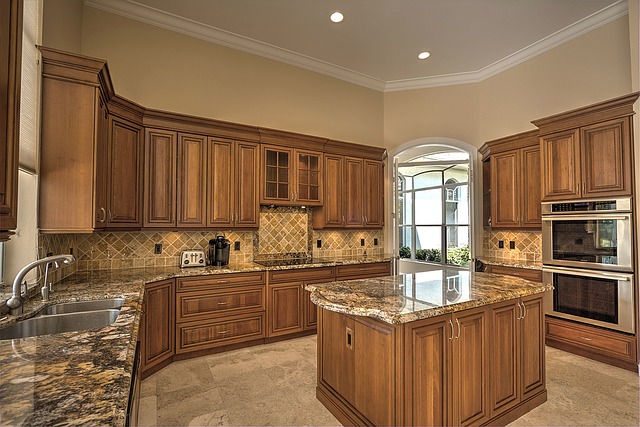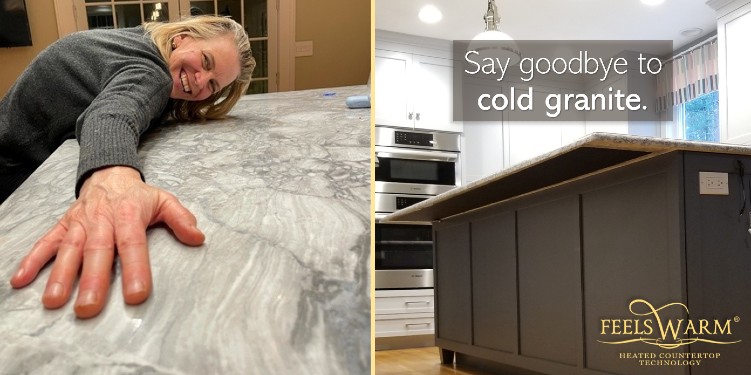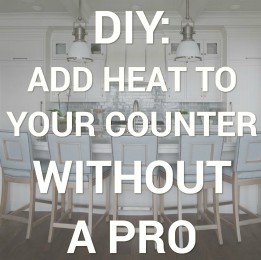
For years, granite has been a top selection for homeowners looking to improve the look and feel of their overall kitchen. How do you know if granite is the right surface selection for yours? Below is a list of the pros and cons of this timeless material.
THE POSITIVES
They are visually appealing.

Every granite slab is unique, featuring its own individual lines, colors and patterns. This uniqueness enable you to have an individual countertop that won’t exist anywhere else. You can find a one-of-a-kind slab that works well with the look of your kitchen cabinets and walls while giving the room an added beauty.
Source
They add value.

Granite countertops not only add an instant upscale appeal to your kitchen or bathroom, they are a timeless investment that give your home lasting value. Click here to see how to clean and disinfect granite so that your countertops last a lifetime.
Source
They are very durable.

Although granite is not unbreakable, it will certainly last for decades as it is a very hard substance that is not susceptible to scratches. Did you know that the only thing hard enough to legitimately scratch granite is a diamond of another piece of granite? Talk about durable!
Source
They resist heat.

Granite is a heat-resistant material so it becomes very practical when cooking near a range or cooktop. Placing hot pots or pans directly on your countertop is acceptable since granite can take the heat without being damaged or weakened.
Source
They resist stains.

Not only is granite heat-resistant, but it is stain resistant as well. Granite countertops won’t absorb liquids when they are properly sealed. Work with a professional to ensure that your surface is sealed correctly so that it maintains its attractive good looks indefinitely.
Source
THE NEGATIVES
They can be porous.

If you don’t seal your granite countertops, or the stone was poorly sealed from the start, there is a chance that liquids could be absorbed, creating long-lasting stains. A poorly-sealed countertop can also house bacteria in its pores. To avoid these issues, it important to get your countertop resealed on a yearly basis.
They are prone to cracking.

Granite countertops may be very durable, but there is still a risk of chipping the stone. If a heavy object is dropped on a corner overhang, for example, a granite repair specialist may need to step in to fix any cracks or damage.
Source
They are cold to lean on.
One common complaint about granite and other stone countertop materials is the coldness. The reason for this is because the mass of granite instantly pulls heat away from skin, causing the brain to perceive that the surface is cold. An easy solution to this problem is a thin stick-on warming mat for under your counter.
They are costly.

In addition to the price of a professional installation, granite countertops can cost anywhere from $100 to $250 per square foot. Comparing this to the cost of laminate, Corian or Marbelite, granite is on the higher end for spending. Keep in mind that the thicker the slab, the more you can expect to spend.
Source
They most likely come with seams.

Due to the size of the typical slab, your granite countertops will most likely be installed with more than one slab. This is in contrast to the solid surface countertops that do not need seams because the material is manmade and is poured to form the countertops.





